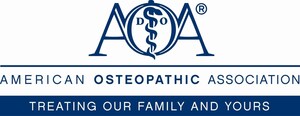Osteopathic Medical Profession Supports Do Not Resuscitate Rights for Developmentally Challenged and Older Adults
CHICAGO, July 21, 2012 /PRNewswire-USNewswire/ -- Members of the American Osteopathic Association's (AOA) House of Delegates approved two policies today to protect patients' rights at the time of death for all individuals, including older adults and developmentally challenged adults.
Do Not Resuscitate Orders on Older Adults
In numerous states, "Do Not Resuscitate" procedure laws fail to address the needs of the elderly who are no longer of sound mind and who reside in a long-term or extended-care facility. These adults might have told a loved one that they did not wish to be resuscitated but failed to sign legal documentation to support their wishes.
The policy calls for the AOA to work with state societies and elder care advocacy groups to encourage legislation upholding a patient's right to "Do Not Resuscitate" designation as determined by patient or, if the patient is incompetent, the family, attending physicians or patient advocate.
"Ideally, these conversations about end-of-life care should take place while everyone is still healthy and capable to make their own decisions. These intentions should then be noted in legal documentation," explains Kevin P. Hubbard, DO, corporate vice president of Heartland Hematology-Oncology Associates in Kansas City, Mo., and clinical professor of medicine at the Kansas City (Mo.) University of Medicine and Biosciences College of Osteopathic Medicine. "If elder adults have previously expressed their desire to reject life-prolonging interventions, they have a right to a 'do not resuscitate' designation even if they are unable to express their intent in their current state."
End-of-Life Care for Developmentally Disabled
Another policy calls for the AOA to work with state societies and advocacy groups for the developmentally disabled to develop and implement policies to ensure dignity at the time of death for all individuals, including the developmentally challenged. Since many states acknowledge advanced directives and "Do Not Resuscitate" orders as a personal right, the legal guardian of a developmentally disabled adult is unable to sign such orders on behalf of a loved one.
About the House of Delegates
The AOA's House of Delegates, comprised of more than 500 delegates representing osteopathic state medical associations, specialty societies, interns, residents and students from throughout the country, meets annually in July to set organizational policies and elect new officers.
About the American Osteopathic Association
The American Osteopathic Association (AOA) proudly represents its professional family of more than 100,000 osteopathic physicians (DOs) and osteopathic medical students; promotes public health; encourages scientific research; serves as the primary certifying body for DOs; is the accrediting agency for osteopathic medical schools; and has federal authority to accredit hospitals and other health care facilities. More information on DOs/osteopathic medicine can be found at www.osteopathic.org.
SOURCE American Osteopathic Association
WANT YOUR COMPANY'S NEWS FEATURED ON PRNEWSWIRE.COM?
Newsrooms &
Influencers
Digital Media
Outlets
Journalists
Opted In






Share this article